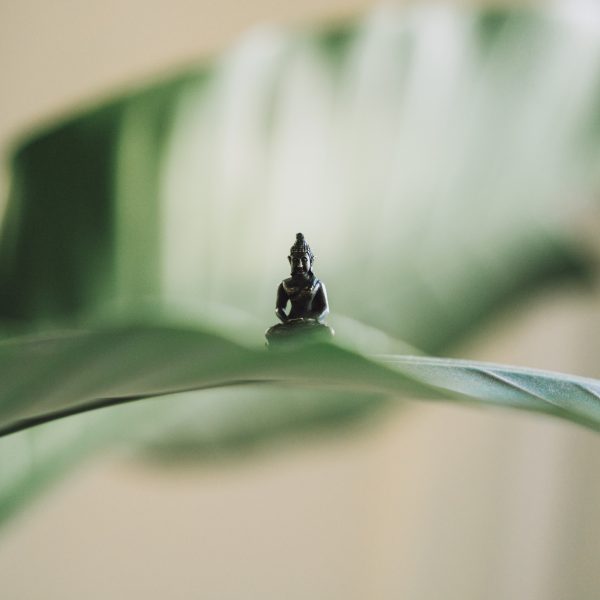Create the space for Inspired Learning

As early childhood educators, we know how vitally important the first 2000 days of a child’s development are. They play a key role in paving the road to a happy, healthy, and successful life. But what does that look like, and how do we create a classroom climate that ensures we nurture and nourish the whole child and so enable a flourishing future?
In Australia today, 1 in 7 children and adolescents aged 4 to 17 are experiencing a mental health disorder. Currently 50% of these problems continue through childhood and beyond, if they go unchecked.
Early prevention is key
As we deal with the ever-increasing decline in the mental health of our very young, we need
to ensure – with a measure of urgency – that, alongside learning to read, write and do math,
they also receive tools, and engage in experiences, to cope with, and manage, the social
emotional challenges of ‘growing up’.
The predominant focus stills seem to be on academic and physical development with
mental well-being a secondary consideration. If we are to raise healthy adults, whole child
development must also include actively taking care of their mental and emotional wellbeing, and giving them tools that enable them to support themselves as they grow.
Ancient wisdoms for Modern Day Challenges
As we gallop through the 21st century, the ancient wisdoms of Yoga (Mindful Movement),
Breath + Mindfulness offer simple and inexpensive tools and techniques to help combat the
growing mental, emotional and physical challenges faced by us all – our children, our
educators, and the community at large. And just a few minutes each day can make a big
difference.
Yoga – in short
Yoga poses are designed to cultivate strength, balance and flexibility. They can also reduce
or alleviate neck and back pain, headaches, digestive issues, depression, and anxiety.
Practicing just a few yoga poses each day supports healthy circulation, stimulates the
lymphatic system and improves posture by strengthening the core muscles of the abdomen
and lower back – a super important benefit given the hours we spend hunched over devices.
Breath – in short
Our breath is magical! When we learn to breathe mindfully, we immediately effect change
to our nervous system. Slow and deep breaths oxygenate the brain and body and increase
energy levels while removing toxins from the cells. Breathing deeply and mindfully
stimulates blood circulation throughout the body, and reduces cortisol levels (the stress
hormone), helping us to feel calmer, less stressed and anxious. And the best part is, nobody
needs to know you’re doing it!
Mindfulness – in short
Simply put, mindfulness is a state of active, open attention to the present moment. It is an
ancient practice that has been used for centuries to help us become more deeply aware of
ourselves and our environment. Being mindful requires slowing down, becoming quiet and
focusing on just one thing – which children LOVE to do when given the chance. Practicing
mindfulness regularly has been shown to improve focus and concentration, enhance
creativity, and reduce the risk of increased stress and burnout – so necessary for
overworked and stressed educators.
The power of yoga, breath and mindfulness in our classrooms
Engaging in yoga, breath and mindfulness creates an overall sense of well-being rarely
realised by other activities or sports. Our body feels stronger and more spacious, and our
nervous system is soothed by our breath, which helps our mind to settle. This, in turn, helps
us to feel calm, grounded and less stressed. Within minutes we feel completely nourished in
body, mind and spirit. It’s an immediate trifecta!
Children learn better and play more whole-heartedly when they feel confident and strong.
They’re kinder, more creative, and more generous in spirit and heart. They’re more resilient
when things go awry and better able to self soothe. And, most importantly, they get to grow
up with essential life skills to ensure they have the best possible opportunity to thrive
throughout life.
Educators feel more inspired to do what they love to do – support, nurture and love their
students. They manage their stress and overwhelm with more compassion and become
kinder and more supportive team members. They too get to thrive and know that when
they are thriving, so are their children.
It’s time!
If we are to stem the growing tide of mental health issues amongst our little ones AND
prevent educator burnout, it’s time to make health and wellbeing a priority in our
classrooms. It’s time to punctuate each day with just minutes of mindful activities and
movement experiences to cultivate kindness and compassion – to oneself and others. It’s
time to pause, take a deep breath and enjoy a few minutes in silence. It’s time to befriend
our magical breath and understand how powerful it is as a mood, and nervous system,
regulator.
It’s time for everyone – educators and children – to THRIVE!
Beth Borowsky is the Founder and Head of Wellbeing Education at The Karma Class, a
company dedicated to transforming the classroom climate and overall wellbeing of students
and teachers with easy-to-use tools grounded in yoga, breath and mindfulness. They offer
accredited PD workshops and school-based kids yoga classes.
Popular

Quality
Practice
Research
Curiouser and Curiouser: What Alice helps us see about who should teach
2025-12-19 07:15:35
by Contributed Content

Practice
Quality
Marketplace
Research
Introducing the Orbit Mobile STEM Shuttle: Taking imagination and innovation on the road
2025-12-19 08:00:28
by Contributed Content














